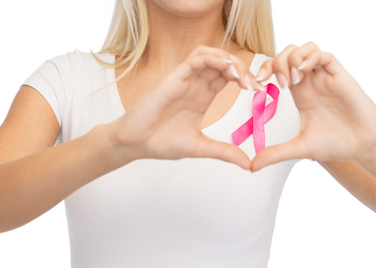 Breast cancer is a common cancer among American women, next to only skin cancer. Awareness campaigns have done a lot to throw light on the disease, helping women to take informed decisions about their health. However, there are still a lot of myths floating around and some of them are quite misleading. Knowing the facts will help you make informed decisions about your health.
Breast cancer is a common cancer among American women, next to only skin cancer. Awareness campaigns have done a lot to throw light on the disease, helping women to take informed decisions about their health. However, there are still a lot of myths floating around and some of them are quite misleading. Knowing the facts will help you make informed decisions about your health.
- A lump in your breast is indicative of cancer: No, not all lumps are cancerous. Most are benign. However, once you find a lump, have a breast exam to rule out cancer.
- Only older women get breast cancer: According to the American Cancer Society, approximately 12,880 women in the U.S. under 40 will be diagnosed with breast cancer in 2015. Though the median age of diagnosis is 61 according to the Breast Cancer Coalition of Rochester (BCCR), breast cancer does not discriminate when it comes to age. So it’s important that women of all ages are aware about their risk factors.
- All breast cancers are the same: No, there are different types. The major subtypes are Luminal A, Luminal B, HER2-positive, and Triple Negative. This can be further classified into sub-categories with dissimilar patterns of progression and response to therapies. This underlines the importance of individualized treatment plans.
- The condition always occurs in the form of a lump: No, formation of lump is just one among the signs of the condition. Swelling of the breast, skin irritation, nipple inversion, redness, or discharge other than breast milk all are signs of the condition.
- Most women who have breast cancer have relatives with the condition: Family history is only one risk factor. There are other risk factors too such as getting older, exposure to ionizing radiation, and so on.
- Antiperspirants and deodorants cause breast cancer: According to researchers at the National Cancer Institute (NCI), there is no conclusive evidence linking the use of underarm antiperspirants or deodorants and the development of breast cancer.
- Only women get breast cancer: No, even men can be affected, though their risk is much lower (less than 1%). The problem is that the condition is usually diagnosed at a late stage in men.
The American Cancer Society says that there is no sure way to prevent breast cancer. However, you can reduce your risks by leading a healthy lifestyle by managing body weight with exercise and a proper diet. If you have a strong family history of breast cancer, consult your physician about the steps you need to take. As the BCCR points out, true prevention means stopping breast cancer before it develops.